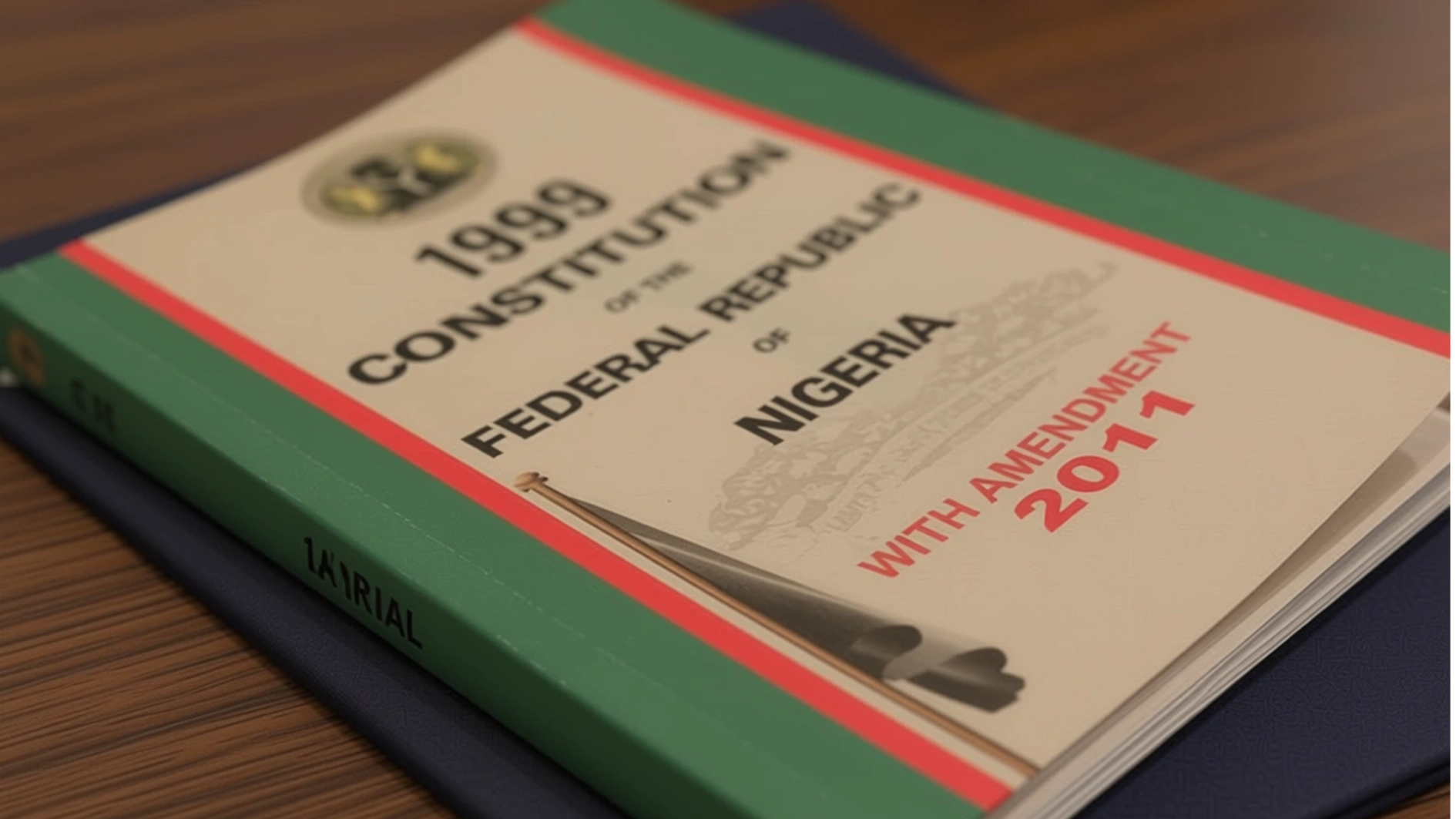There are moments that quietly affirm that grace abounds and is working in the life of a person. What happened on October 27, 2025 at the Ekiti Parapo Pavilion, Ado Ekiti, was one of those moments. The air carried no tension, no quarrel, and no bitterness. It was a gathering that radiated calm confidence, filled with men and women at peace with their decision.
Across the wide expanse of the Pavilion, delegates elected from all 177 wards in Ekiti State arrived in their cheerful best. They came early, from towns and villages, with a sense of purpose and pride. It was not a day of contest; it was a day of affirmation. The delegates had come to formally endorse Governor Biodun Abayomi Oyebanji as the consensus candidate of the All Progressives Congress (APC) for the 2026 governorship election. But beyond the ceremony, it was a day that proved that when a man’s ways please the Lord, He indeed makes even his enemies to be at peace with him.
From the moment the event began, it was clear that something deeper than politics was at play. There was an atmosphere of contentment that one could almost touch. The shouts of solidarity, the songs of support, and the laughter that filled the air were not forced. They came naturally. There was no sign of opposition, no bitterness from any quarter, and no shadow of factional dispute. It was as though the entire state had reached a quiet agreement that this was the right thing to do — that Governor Oyebanji had earned their trust by his steady performance.
For many who watched, the moment carried symbolic power. It showed that consensus, when built on trust, can command more loyalty than any primary election could. It also showed that peace, when genuinely earned, can unite even those who once stood apart. The delegates were not voting today; they were affirming. Yet the seriousness with which they took their duty reflected their belief in the process. Each of them understood that what they were doing was more than endorsing a candidate — it was renewing faith in a leadership that had given the state a sense of stability.
As speeches rolled out from the podium, it became clearer that the people of Ekiti were not just celebrating a political arrangement but affirming a moral principle. Speaker after speaker spoke about loyalty, humility, and service. They praised the calm leadership style of Governor Oyebanji, who, instead of governing with noise, has chosen to govern with listening ears and gentle firmness. Many described him as a man whose life is guided by fairness and the fear of God. The applause that followed each remark showed that the people were in total agreement.
The mood across the Pavilion reminded everyone how far the APC in Ekiti had come. There was a time when internal conflicts threatened to divide the party. Aspirants fought, supporters clashed, and suspicion replaced trust. But today, those memories seemed distant. The very people who once suspected each other now stood side by side, smiling and clapping for one another. That was why many saw the event as not just political but spiritual — a sign that peace had returned to stay.
Some observers recalled that when the party began its internal screening weeks ago, it faced the risk of internal crisis. Four aspirants had bought nomination forms. Two were later disqualified after the screening committee found irregularities in their documents. Another aspirant, after careful reflection, stepped down for the incumbent. What could have become a bitter power struggle became a peaceful consensus. The delegates affirmed that today with joy and pride. In a country where party primaries often end in protests, Ekiti’s experience stood out as a rare example of maturity and order.
And when the Governor rose to address the delegates, he spoke with his usual calm voice. He thanked the party for the trust reposed in him and promised to continue leading with humility and honesty. He reminded everyone that leadership is a trust, not a privilege. His words were not dramatic, yet they carried weight because they matched his record. He spoke about unity, development, and peace — three words that now define his government’s relationship with the people. The crowd responded with chants of “BAO! BAO! BAO!” — the familiar rhythm of affection that has become his political signature.
What was even more touching was the turnout of groups beyond the political circle. Outside the Pavilion were representatives of the civil service, teachers, market women, transport unions, and artisans who took turns to express their support. Their testimonies were simple: that the Governor had touched lives quietly and sincerely. A plank seller said she had seen a different kind of leadership — one that listened to ordinary traders and treated them with respect. A teachers’ union representative from Ikole described Oyebanji as “a leader who understands the plight of teachers in Ekiti.” An Okada riders’ representative from Ado-Ekiti said they supported him because “he is not far from us; he walks our roads and hears our voices.”
The solidarity was overwhelming. One after another, these groups reaffirmed what has now become common knowledge — that Ekiti people are pleased with the man at the helm of affairs. Even those who once opposed him politically could not hide their admiration. Their public gestures of support spoke louder than any speech. The saying in town now is simple: “BAO has made even his enemies to be at peace with him.”
The unity of purpose that filled the Pavilion today did not come by accident. It was built over time through consistent actions that prioritised the people’s welfare over political drama. In his three years as governor, Oyebanji has demonstrated a pattern of quiet service — paying salaries as and when due, reviving abandoned projects, supporting small businesses, and opening doors of dialogue with every sector of society. He has managed to govern without noise, lead without arrogance, and achieve without boasting. That kind of leadership disarms even critics.
In many ways, the affirmation at the Pavilion was both political and spiritual. It felt like a fulfillment of the scripture that says, “When a man’s ways please the Lord, He maketh even his enemies to be at peace with him.” The peace witnessed today was not forced; it was earned. It was the peace of understanding, of satisfaction, and of gratitude. It was the peace that comes when people see their hopes reflected in the actions of their leader.
As the event drew to a close, there was no single incident of quarrel or protest. Instead, there were hugs, handshakes, and songs. Delegates took pictures, waved party flags, and spoke glowingly about how the process had strengthened their faith in the APC. The governor, surrounded by cheering supporters, smiled modestly and waved to the crowd. The atmosphere felt more like a thanksgiving service than a political gathering.
Outside, artisans sang, drivers honked, and civil servants joined the chants — Ora BAO! A joo sise! — an Ekiti dialectic expression meaning “All Hail BAO! Your leadership will go smoothly.” The chant echoed through the streets like a collective prayer, capturing the people’s joy and faith in his leadership.
What happened today will be remembered not for its grandeur, but for its grace. The absence of rancor, the unity of purpose, and the joy of the people together created a scene that no money could buy. It was a reminder that true leadership is not about domination, but about inspiration. When people freely choose to follow, it means the leader has led well.
As the crowd dispersed, one could sense that Ekiti had just written a new chapter in its political story — one defined by maturity, trust, and divine favour. Those who had predicted division were left speechless. Those who had doubted the consensus saw that it was not manipulation but manifestation — a manifestation of goodwill that had been quietly built through service.
For the APC, the affirmation of October 27, was more than a formality. It was a renewal of confidence, a sign that the party has learned from its past and is determined to remain united. For the people of Ekiti, it was a moment of pride — that their state could conduct such an important exercise without confusion or conflict. And for Governor Oyebanji, it was yet another reminder that leadership anchored in humility attracts grace and peace.
In the end, what stood out was not the speeches or the applause, but the sense of harmony that filled the air. Everyone seemed to understand that they were part of something bigger than themselves — a movement of faith, unity, and shared destiny. The Ekiti Pavilion may return to its quiet routine tomorrow, but the spirit that filled it today will linger for a long time.
It will linger in the hearts of delegates who felt proud to affirm their governor. It will linger in the minds of citizens who saw that peace is possible in politics. It will linger as a testimony that when a man’s ways please the Lord, no voice of opposition can stand against him. And it will linger in the story of Ekiti as the day when politics bowed to peace, and leadership met divine approval.
In simple truth, what happened at the event was not just the affirmation of a candidate; it was the affirmation of character. Governor Biodun Abayomi Oyebanji has proven that true power does not come from noise, but from grace. And when grace leads, peace follows. That is why, at the Ekiti State Pavilion today, even those once seen as opponents stood in agreement.
Faleye wrote from Ado-Ekiti.






